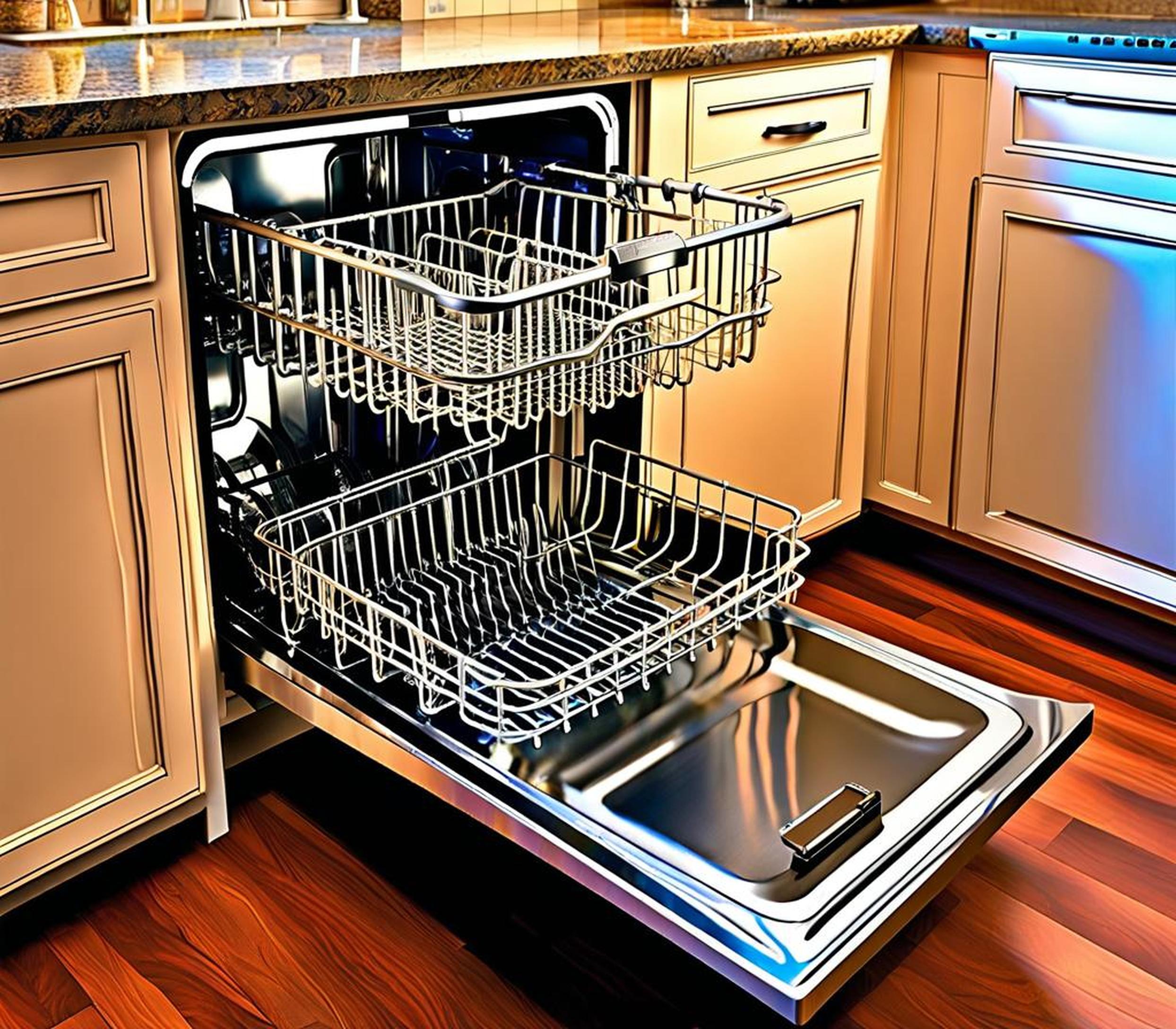Is your dishwasher refusing to start no matter how many times you press that Start button? Few things are more frustrating than a dead dishwasher full of dirty dishes. But don’t despair – with a little investigative work, you can get to the bottom of the issue and get your appliance back in working order.
Dishwashers fail to start for a variety of reasons, most commonly due to power supply problems, faulty door latches, control panel issues, timer malfunctions, or internal component failures. The good news is that many start-up failures can be fixed yourself with basic tools and some helpful troubleshooting tips.
Power Supply Issues
If your dishwasher is completely dead and unresponsive, the first things to check are the power supply and connections. A dishwasher needs proper electrical power to run its wash cycles. Here are some common power-related reasons a dishwasher won’t start:
Faulty Power Cord
A damaged or defective power cord is one of the most likely reasons your dishwasher won’t turn on. Check the cord for any cuts, nicks, or burnt areas. Use a multimeter to test for continuity. If the power cord is faulty, it will need to be replaced. Make sure to unplug the dishwasher before checking or replacing the cord.
Tripped Breaker
A tripped circuit breaker can interrupt power to your dishwasher. Locate the home electrical service panel and identify the breaker controlling the dishwasher circuit. If the breaker is flipped to OFF, flip it back ON to reset it. If it immediately trips again, there may be a wiring issue needing professional service.
Extension Cord Usage
It’s best to plug a dishwasher directly into a wall outlet, not an extension cord. The high wattage heating element can overload cords and create a fire hazard. Use an extension cord only when absolutely necessary, opting for at least 12 AWG cord no longer than 6 feet.
Door Latch Problems
The door latch keeps the door securely closed during operation and acts as a safety switch, preventing startup until latched. Latch failures can also keep a dishwasher from starting up.
Damaged Door Latch
If a dishwasher door won’t properly latch, the dishwasher may not start. Inspect the door latch for any broken or sticking components and test it with the door open and closed. If the latch is defective, replace it with a manufacturer-approved part.

Door Alignment
Misaligned or bent doors can cause latching problems. Check the door’s inner seal and outer cabinet alignment for gaps. Adjust dishwasher feet or hinges as needed to realign the door. Adjustments may allow the latch to connect properly.
Control Panel Issues
Today’s dishwashers have electronic control panels that can malfunction and cause start-up issues. Try resetting power to the dishwasher before replacing parts.
Non-Functioning Start Button
If no lights come on and pressing the Start button does nothing, the button may be broken internally. Use a multimeter to test the start switch for continuity. If defective, replace the start switch.
Control Board Malfunction
If some lights come on but Start does nothing, or if an error code is displayed, the control board could be faulty. Review troubleshooting tips for your dishwasher model and consider replacing the control board.
Timer Problems
The timer controls WHEN power is sent to cycle components like fill valves and heating elements. Timer issues can prevent the proper operation of cycles.
Faulty Electronic Timer
Use a multimeter to check the electrical timer motor for continuity between terminals. If the motor or connections are damaged, replace the timer. Consult the wiring diagram for your model.
Stuck Wash Cycles
If a wash cycle won’t advance and dishes don’t get cleaned, power cycle the dishwasher to reset the controls. Test a short cycle without dishes. The timer may need replacement if cycles get stuck.
Internal Component Failures
Problems with internal components like the motor relay can prevent the dishwasher from starting up.
Broken Motor Relay
The motor relay helps supply power to the wash motor. Use a multimeter to test the motor relay for continuity between specific terminals. Replace it if defective.
Faulty Drain Pump
If the drain pump is stuck or defective, it can keep the dishwasher from filling properly. Try freeing the impeller; if still noisy or not pumping, replace the drain pump.
Thermal Fuse Malfunction
The thermal fuse helps prevent overheating, and a blown fuse will result in a no start. To check, locate the thermal fuse and use a multimeter to test continuity. No continuity means it needs replacement.
Broken Dishwasher Motor
Without a functioning motor, wash cycles can’t run. Use a multimeter to test the motor windings for continuity. If defective, the motor requires replacement.
Damaged Door Switch
A bad door switch prevents the dishwasher from detecting the door is closed. Check door switch continuity with your multimeter when the door is open and closed. Replace if it’s faulty.
Don’t let a finicky dishwasher add to your headaches. With some electrical testing and component checks, you can troubleshoot why your dishwasher won’t start. Our tips will help you remedy common causes like power supply issues, door latch problems, timer malfunctions and internal component failures.
Knowing how to diagnose dishwasher problems can save you the cost and hassle of a service call. With a little time and effort, you can fix it yourself and get your appliance back in working order. Just be cautious when working with household electrical systems. With our guidance, you’ll be ready to tackle a dead dishwasher and get it washing dishes again!
